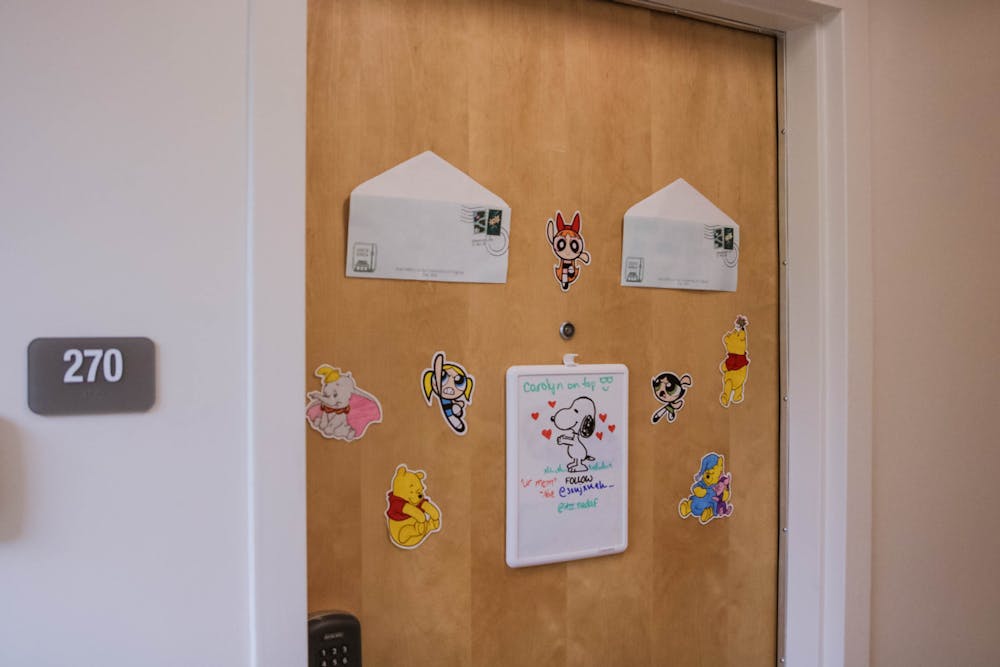In the midst of a busy college move-in season at Tufts University, resident advisors took a stand for better benefits by orchestrating a strike. ULTRA, the union representing the school’s RAs, called for a stipend in addition to free housing. This is not an unreasonable ask — the majority of RAs at Tufts receive financial aid and work additional jobs all the while transforming dormitories into homes and providing twenty-four hour support to their residents. The same rings true here on Grounds, where RAs serve as the conduits that facilitate so much of University life. The University cannot continue to depend on student labor while inadequately compensating the students who make our great experiences possible. It is past time for the University to adequately recognize the crucial work that RAs do by providing RAs with a stipend.
The lack of support for RAs is not a new development, nor is calling on the University to address it a new demand. Last year, Young Democratic Socialists of America launched their housing campaign and made its grievances known in a letter to President Jim Ryan. Among their calls for University administrators to address several other housing concerns, YDSA demanded stipends for RAs, in addition to their pre-existing housing and meal plan accommodations. These demands were never met, and issues of fair compensation for RAs continue to bubble up.
On Grounds, RAs are expected to handle an overwhelming amount of responsibility — they foster genuine community in their dorms and are responsible for promoting the safety of their residents. This means responding to texts throughout the day and often staying up “on call” until 2 a.m. on weekends to make sure their residents are safe. RAs invest in their residents’ lives — often including support with mental health, relationships and safety concerns — which can be emotionally taxing. RAs are usually the first welcoming face when students come to Grounds, becoming their information centers, tour guides, academic advisors and even therapists. RAs are never off-duty. They live where they work — there is no separation of space and obligation.
To challenge the notion that RAs are student workers would be absurd, especially considering the University’s own practices — the University regularly includes RAs in policies meant for University employees, such as the recent TikTok ban or its Responsible Employee policies. Even during the COVID-19 pandemic, the University expected RAs to act as frontline workers and enforcers without providing the necessary resources nor compensation to effectively do so. If the University can include RAs in its work policies, surely the University can include RAs in its benefits.
Yet for all that they do at the University, RAs are only given a partial meal plan and free housing. They are not given any financial compensation for their services, nor are they accommodated through other means like free or reduced-fee parking.
Some argue that direct financial support is unnecessary since RAs receive free housing and dining plans, but this could not be further from the truth. Financial strain is cited as a main reason why RAs do not return to their positions. The time and attention RAs dedicate to their residents is time and attention that could be given to endeavors with more direct pay-offs, such as work or school. The University must be committed to retaining the talented individuals who make this school a home — and that starts with supporting RAs through genuine compensation.
Direct financial compensation is also essential for diversity and inclusion. The University claims that they are committed to developing a diverse team of RAs. In practice, however, University administrators make it more difficult for low-income students to serve as RAs then the rest of their peers. When students apply to the program, they are warned that their financial aid packages may be impacted by their decision to apply. This means, for example, if a student receives financial assistance to pay for room and board, the University may decrease — or take away — this assistance in light of the student’s decision to serve as an RA.
The obvious impact of decreasing financial aid packages in this manner is that low-income students have less of an incentive to serve as RAs. Where their peers are recompensed with meals and housing as result of their work, low-income students are often left with little more than they were already receiving. This is ridiculous. This state of affairs directly contradicts the University’s stated commitment to developing a diverse residence staff and further devalues the priceless work that low-income RAs do for the University. A simple way to begin remedying this injustice is to offer RAs a stipend. A stipend not only provides a monetary incentive to apply to the RA program, but it also guarantees that low-income RAs are given something beyond what they were already receiving to attend the University.
Overall, a stipend is the least that the University can do to ensure that RAs — who take care of us — can take care of themselves. This compensation is so reasonable and overdue that other colleges and universities already do it. Some provide a salary or stipend along with housing accommodations, and others even go as far as to ensure that RAs’ financial aid is not affected by their position. Even Virginia Tech pays its RAs. The University is no less capable of providing stipends to its RAs — it is just less willing.
The Cavalier Daily Editorial Board is composed of the Executive Editor, the Editor-in-Chief, the two Opinion Editors, their Senior Associates and an Opinion Columnist. The board can be reached at eb@cavalierdaily.com.







